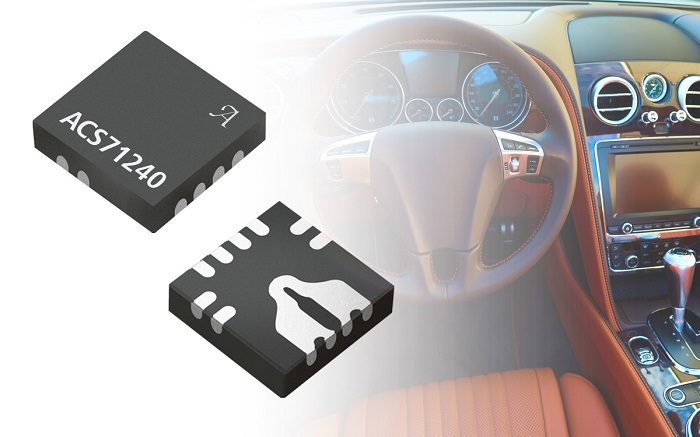By Gina Roos, editor-in-chief
Allegro MicroSystems has launched a new family of automotive AEC-Q100−qualified Hall-effect current sensor ICs that offer improvements over the predecessor ACS711 devices. The new ACS71240 family targets a variety of applications, including electric vehicle chargers, DC/DC converters, and industrial motor and IoT applications.
The ACS71240 current sensors can replace shunt resistors, operational amplifiers, current transformers, and voltage isolators in applications that require small-form-factor, monolithic sensor solutions. Available for use on 5-V or 3.3-V power supplies, these integrated solutions reduce the overall cost of current sensing by eliminating discrete components and board space.
Improvements include:
- Output signal immunity to stray magnetic fields (created by adjacent motors or current carrying wires)
- Improved output signal accuracy (
- Output signal immunity to noisy supply voltage rails

The ACS71240 family offers an extremely fast, dedicated overcurrent fault output that has a typical response time of 1.5 µs, which improves system safety. This fault output detects short-circuit events, preventing damage to MOSFETs or IGBTs in inverter, motor, and other switching power electronics applications.
The ACS71240 family is offered in two small-form-factor package options, each providing different levels of galvanic isolation. The 3 × 3-mm, wettable flank QFN package can be used on voltage rails up to 120 VDC and enables solder joint inspection required in zero-PPM automotive applications. The SOIC8 package is UL-certified to 2,400 Vrms of isolation and offers a working voltage of 420 VDC or 297 Vrms. The ACS71240 datasheet provides more details.
Advertisement
Learn more about Electronic Products Magazine





